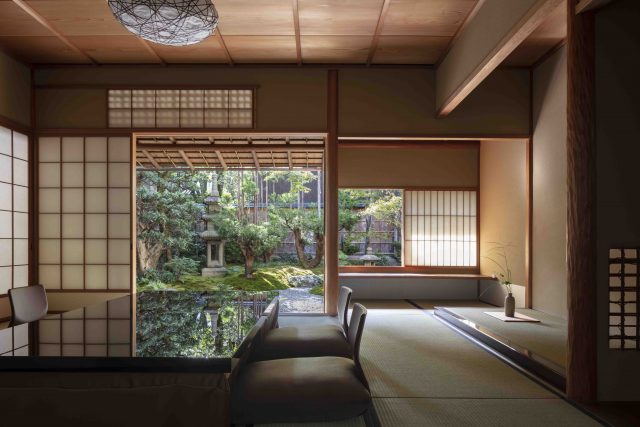It’s late evening in Bhutan, and the second day of my week long journey here. The sun has just set, and in the darkness, I am guided over a narrow bridge to cross river Mo Chu, where a small buggy waits on the other side. Visibility is low Aa we drive through the dirt path, but I can hear a faint melody in the distance. Parking by the entrance, a thick wooden door is pulled open and I step onto the stone-tiled courtyard of Punakha Lodge, Amankora, greeted by smiling faces, a refreshing iced drink, and a performance by a musician wearing a traditional Bhutanese gho.
The musician was playing the dramnyen, a traditional Himalayan lute often used to keep time in a rhythmic fashion. In Bhutan, a slower rhythm and pace of life awaits. As their quaint road signs will remind, “going faster will see disaster”. Slow and steady we go.
If there’s any place to rest and relax, it’s Aman. Somehow sheltered even within the already secluded Kingdom of Bhutan, Amankora reflects the calm Bhutanese mindset where thoughtful intention and relaxed ease go hand in hand.
The ultra-luxe hospitality group has spread its roots firmly throughout the mountainous and highly spiritual country. Other than its Punakha lodge, Amankora also boasts lodges in Thimphu, Paro, Gangtey and Bumthang. The earliest international hotel to exist in Bhutan, Amankora was established in 2004, with each lodge offering different activities reflecting the respective regions of Bhutan alongside the country’s rich culture and heritage.
At Amankora Punakha, a team will craft a bespoke itinerary to suit your interests and curiosity. Adventurers can hike to nearby Khamsum Chorten or raft through rivers Mo Chu and Po Chu. Tired out from a walk the day before? Take part in a Bhutanese cooking class or pay a visit to Aman’s spa for a grounding massage ritual or a nourishing facial.
Food, too, is seemingly fuss-free yet carefully curated to balance local tradition with Western offerings. Local dishes include a rich and creamy solar, (buttermilk soup) and freshly made aloo paratha, served alongside a medley of side dishes from dal makhani and chicken curry to sautéed potato with onion, ginger, tomato and green chili. Alternative menus are also available, and the team of chefs are more than accommodating to any dietary requests or allergies.
I stayed a night each at Amankora’s Paro and Punakha lodges. The former is hidden within a pine forest with views of Jumolhari, Bhutan’s second tallest mountain. The latter follows the build of a traditional royal farmhouse, and was previously owned by the country’s former Je Khenpo (chief abbott). Each lodge is minimal yet intentionally crafted, with architecture reflecting the austere Bhutanese structures while embodying that signature Aman feel of warmth and hospitality.
At Aman, it’s all in the details. Besides the luxurious amenities and all the fixings one might expect from a 5-star resort – a standalone bathtub, a plush king bed, tip-top spa offerings and so on – the ‘Aman’ experience wouldn’t be complete without its people and unique attention to detail that add up to, well, everything.
Many such details at Amankora are almost imperceptible – and this is no mistake. Soiled clothes are tactfully brought to be washed and quietly returned that same evening. Leaving dinner early and no time to squeeze in dessert? Waiting in your room upon return you might just find a freshly prepared sweet treat and a cup of steaming hot tea. From arrival to departure, each step of the Aman experience is seamless and instinctive, as it leans into Bhutan’s thoughtful hospitality and all the magic that this incredible country has to offer.
Editor
Carina Fischer









